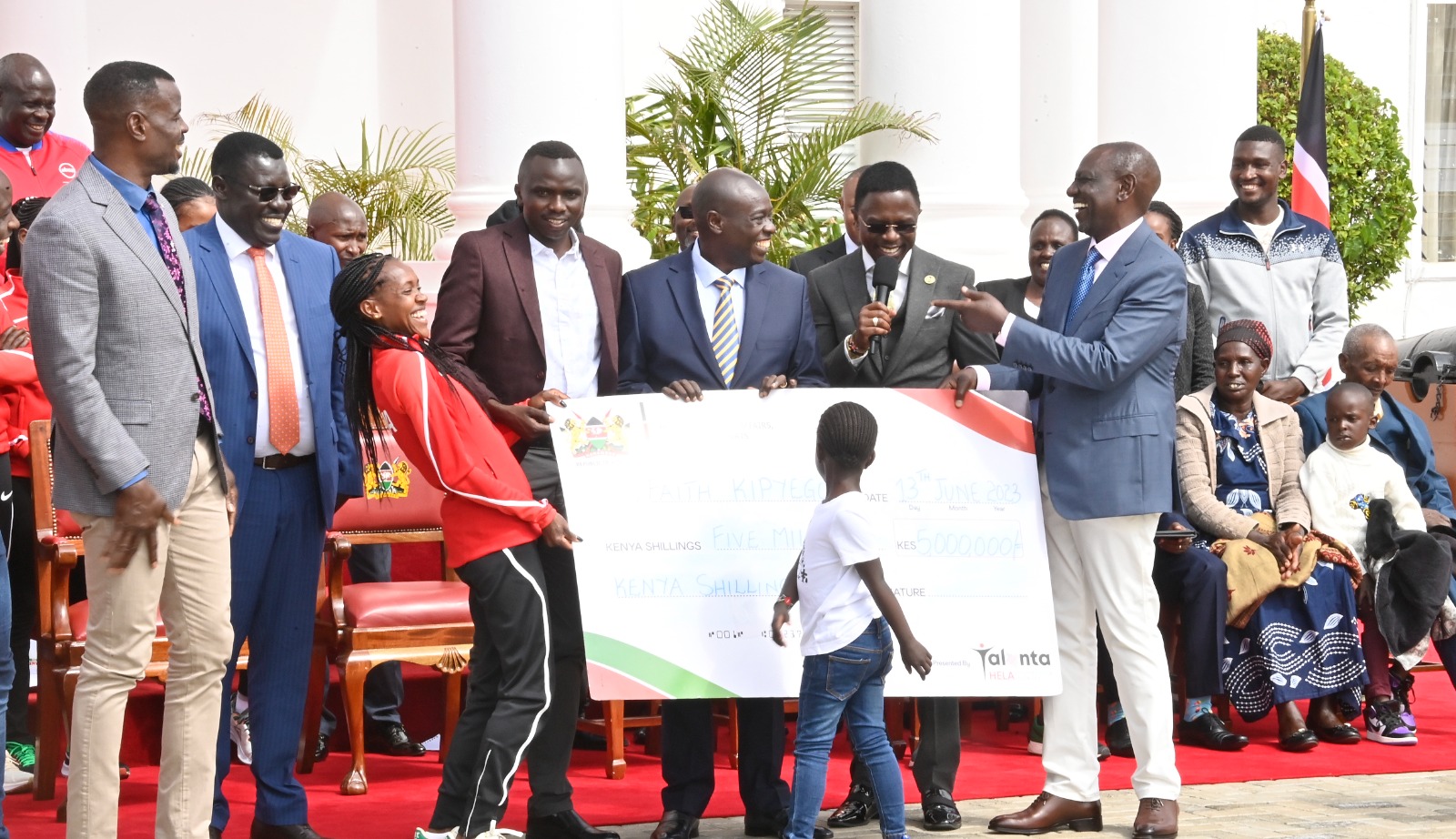- Alinur Mohamed, a politician, expresses dissatisfaction with President William Ruto’s decision to reward Faith Kipyegon with Ksh5 million cash prize and a Ksh6 million house for breaking world records.
- Mohamed raises concerns about the disparity in treatment and rewards between Kipyegon and athlete Ferdinand Omanyala.
- He questions whether the discrepancy is based on Omanyala’s gender.
- Mohamed highlights the silence of political figures Musalia Mudavadi and Moses Wetangula on the issue.
Politician Alinur Mohamed has expressed his dissatisfaction with President William Ruto’s decision to award Faith Kipyegon, a fellow Kalenjin, with a cash prize of Ksh5 million and a house worth Ksh6 million for breaking two world records.
Mohamed has raised concerns about the apparent disparity in treatment and rewards between Kipyegon and athlete Ferdinand Omanyala.
Mohamed criticism
Mohamed’s criticism centers on the fact that Omanyala, despite his notable achievements in athletics, has not received comparable treatment or rewards from the government. He questions whether this discrepancy is due to Omanyala’s gender and raises the issue of political figures, such as Musalia Mudavadi and Moses Wetangula, who have remained silent on the matter.
The politician further questions the source of the Ksh11 million awarded to Kipyegon, particularly in light of the reported non-payment of salaries to Early Childhood Development Education (ECDE) teachers for the past eight months. Mohamed suggests that such a disparity in financial allocation raises concerns about the government’s priorities and its handling of funds.
The controversy surrounding the differential treatment of Kipyegon and Omanyala has sparked discussions about gender bias in the recognition and rewards given to athletes. Critics argue that this discrepancy perpetuates gender inequality and highlights a systemic bias in the sports industry.
Related posts: Kenyan athletes to get cash rewards and diplomatic passports
It is important to note that Alinur Mohamed’s remarks have ignited a debate, with some supporting his stance and others questioning the validity of his claims. The government’s response to these concerns, as well as the reactions from relevant stakeholders, will undoubtedly shape the ongoing discourse.
Raised questions
In the broader context, the discussion raises important questions about the distribution of resources and the allocation of rewards within the sports sector. It prompts a critical examination of the criteria used to determine the magnitude of recognition and financial compensation for athletes, irrespective of their gender.
As the debate unfolds, it is essential for stakeholders to address these concerns transparently and ensure that fairness, equality, and meritocracy guide the allocation of rewards within the sporting community. The issue also highlights the need for a comprehensive approach to addressing financial challenges faced by other sectors, such as the reported non-payment of ECDE teachers.







